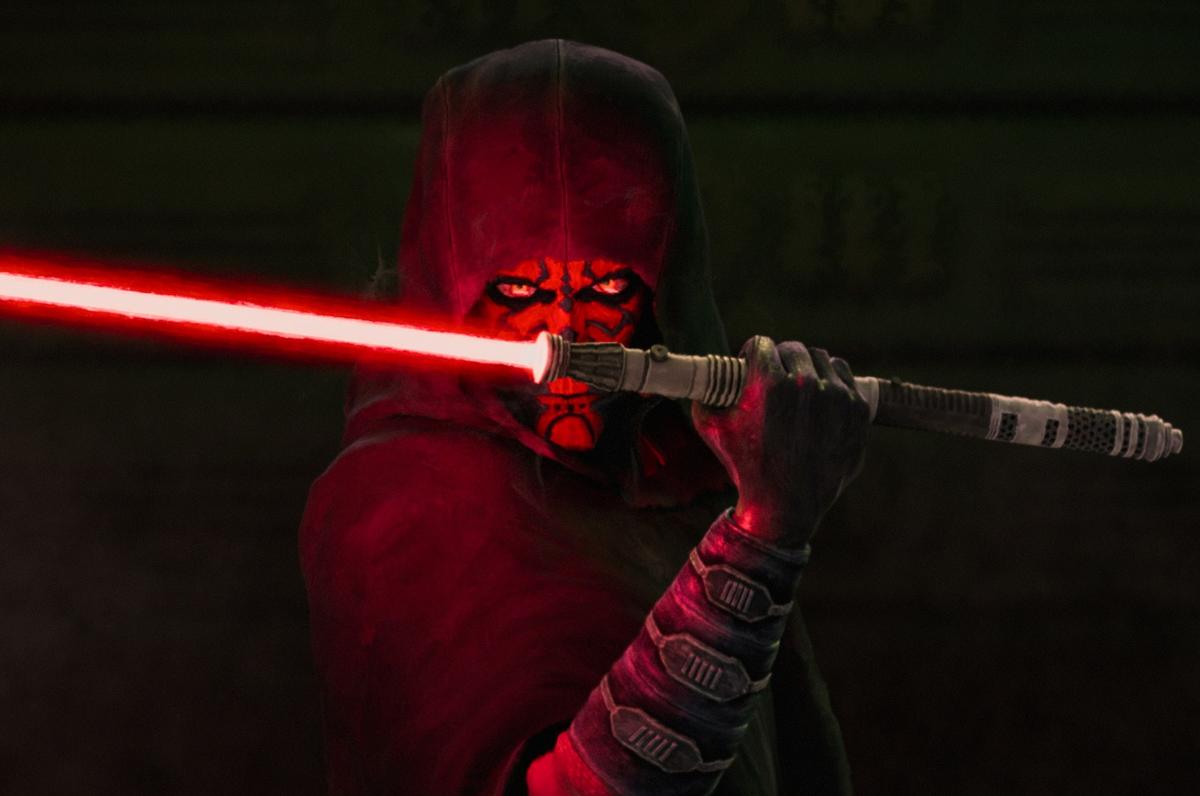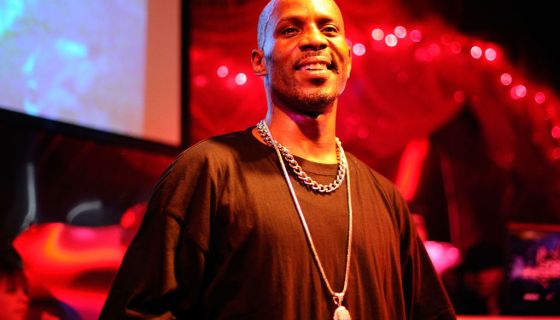In January 2009, during a midnight screening at Sundance, Michael Jai White knew he had something special in Black Dynamite. Nine months later, the Blaxploitation spoof’s limited theatrical release and minimal box office gross didn’t stop its immediate fate as a cult classic. Demand for a sequel soon followed, and so White, as co-writer of the film, penned a direct sequel that struggled to get off the ground due to creative differences with a producer.
Consequently, White went back to the drawing board and pursued an idea he had at the same time as Black Dynamite’s conception. If that action-comedy paid homage to Blaxploitation films through parody, then it would only make sense to take a similar approach with other genres. So, White revisited his earlier ideas for three other genre exercises including a horror movie, a kung fu movie and a Western. That Western is now known as Outlaw Johnny Black, and to get the movie into production, White made another proof-of-concept trailer a la Black Dynamite in order to raise the necessary funds by way of fans and private investors.
While the resulting film still has plenty of jokes and gags a la Black Dynamite, White — now serving as co-writer, director, producer and star — included a bit of earnestness to his more well-rounded story, as well as an emphasis on character. And taking a page out of the Monty Python playbook, White also brought back a number of his Black Dynamite co-stars in new roles such as co-writer Byron Minns, Tommy Davidson, Kevin Chapman and Kym Whitley.
So, as much as Outlaw Johnny Black is a spiritual successor to Black Dynamite, White wants to make it clear that it’s really its own enterprise.
“I had this [Outlaw Johnny Black] idea for the story before I’d done Black Dynamite, but as it worked out, I had to get the money for it. Basically, it was like starting all over,” White tells The Hollywood Reporter after receiving an SAG-AFTRA interim agreement to promote his indie. “And so like I did with Black Dynamite, I created a [crowdfunding] campaign. But I did this entirely. There’s no connection with the production of Black Dynamite for this. This is something completely different.”
Six months prior to Black Dynamite’s electric Sundance screening, White delivered a memorable turn as Gotham City mobster Gambol in Christopher Nolan’s The Dark Knight, the highest-grossing film of 2008. But despite his unforgettable confrontations with Heath Ledger’s Oscar-winning Joker, White insists that the blockbuster had no impact on Black Dynamite’s $2 million distribution deal at Sundance or his future roles.
“Traditionally, it would seem that one thing would have something to do with the other, but it’s like they were two different worlds. And even to this day, I’ve got to say that The Dark Knight never connected me with anything after that,” White admits.
Below, during a recent conversation THR, White also teases a significant cameo at the end of Outlaw Johnny Black involving a father figure and mentor who has since passed away.
So I just talked to a director named Juel Taylor, and his directorial debut, They Cloned Tyrone, featured Black Dynamite’s Anaconda Malt Liquor. That’s just one of many examples of how Black Dynamite is a cult hit. When did you first start to feel that type of energy around it?
Well, I had some test screenings, but Sundance told me everything. We had a lot of applause throughout the movie’s midnight showing, so that felt really good.
When the original film landed distribution at Sundance in 2009, the film spoke for itself, of course, but do you also credit your memorable role in The Dark Knight six months earlier?
Honestly, no. Traditionally, it would seem that one thing would have something to do with the other, but it’s like they were two different worlds. And even to this day, I’ve got to say that The Dark Knight never connected me with anything after that.
Well, it’s been a long road to this point, and there’s been talk of a follow-up since the early 2010s, if not earlier. What was the hold-up?
I had this [Outlaw Johnny Black] idea for the story before I’d done Black Dynamite, but as it worked out, I had to get the money for it. Basically, it was like starting all over. And so like I did with Black Dynamite, I created a campaign. I did a mock trailer to get the money for Black Dynamite, and that’s what I did with Outlaw Johnny Black. But I did this entirely. There’s no connection with the production of Black Dynamite for this. This is something completely different.
The original movie was a genre exercise most of all. It paid homage to Blaxploitation films through parody. So, taking a similar approach with another genre like the Western makes more sense to me than a direct sequel. That said, was there ever a direct sequel in the cards?
Well, I had written the sequel to Black Dynamite just a year afterwards. It’s just that there were difficulties that [I] ran into, mainly the producer of Black Dynamite wanted to kind of change things up. And then there were a lot of mishaps in dealing with that and trying to get that going. So I already had the idea to do Outlaw Johnny Black and some other things a while back, and then I just did my own campaign and got this done.

Outlaw Johnny Black
Goldwyn Pictures
I know you’re treating Outlaw Johnny Black as more of a spiritual successor, but do you still consider the character of Johnny Black to be the grandfather or great-grandfather of Black Dynamite?
It’s fun to think that way, but this is completely unrelated. Back in the early ‘70s, we had a lot of what people call “Blaxploitation,” but I call it a renaissance of Black movies. You had a lot of the stars playing different roles, but you could still see that star within it. Jim Brown would play Slaughter [in 1972’s Slaughter] and other roles that were kind of similar, but he would also do a Western and what have you. So I’m recreating that kind of world. I’m also a big fan and child of Monty Python, where you see the same troupe get together and do something else. You just know that it’s that particular clique, because they have that particular style. So this is similar in the way that it’s done, circa 1971. We have the same kind of soundtrack and sound effects and everything else that I wanted to evoke, just like when you first experienced these movies.
Outlaw Johnny Black has plenty of jokes and gags, but it also has more sincerity than the original film. Your character even has a proper arc. What was your thought process behind a more well-balanced tone this time?
Well, I love Westerns. When a Western is done right, there aren’t many movies that I like better, but I had something to say in this. You can entertain and do all those things, but at the nucleus, I’m a former school teacher. I’m also a husband and father. If you can say something in your art and entertain people at the same time, I say go for it. I grew up with movies that had morality and had great storytelling, movies like Uptown Saturday Night, A Piece of the Action and all these other movies that Harry Belafonte and Sidney Poitier did. And I would watch those movies over and over again. You can watch them with your family and feel uplifted by the end of it. So that’s exactly what I wanted to do with this. I wanted an older audience, my age and older, to revisit that and feel those textures again. And I wanted to share that same feeling with a younger audience, especially in a time like today where there’s so much division in our social atmosphere. So I wanted to do a story that speaks against hate and talks about how we are more alike than we are dissimilar.
Westerns are known for being difficult to make in terms of the actual production, so are you glad this wasn’t your first go-round as actor-director? Did you need those earlier reps before doing this?
Absolutely. Even when I was just acting, I could never quell the director and producer in me. I did my own short films when I was 10 years old. I would edit on Super 8 film and everything else. So this is just me performing in the way that I think I was meant to. It’s not strange. It actually feels very comfortable for me to write, direct, act and produce. It’s a joy. It feels like that saying, “If you do what you love, you will never work a day in your life.”

Outlaw Johnny Black
Goldwyn Pictures
As you touched on moments ago, you brought back a number of Black Dynamite cast members in new roles. You couldn’t bring everybody back, obviously, so how were those decisions made?
Well, you want people who you know can fit the characters, and the fact that I am the writer of the movie, I can custom make those characters. There’s a clue to that in the fact that I basically named the characters after the actors in many cases. Mayor Williams is played by Gary Anthony Williams, so it’s not a coincidence.
I’m a big fan of Glynn Turman. Was the opportunity to direct him one of the highlights of this entire experience?
Oh yeah. I’ve had the chance to work with Glynn a few times, and he was my only choice to play Bullseye Black, Johnny’s father. Glynn is a horseman. He’s a total cowboy. I’ve known him for several years, and I knew he had every sensibility in the world. So it’s important that the drum of the story be rooted in a real place, and I knew Glynn would be the guy to do that. Luckily, I got my dream cast.
There’s a notable cameo at the end of the film involving someone who has since passed away. I presume it’s a moment that’s become even more meaningful to you these last few months?
Absolutely. This is a person that was closer to me than my own biological father. I believe I wouldn’t be the man I am if it hadn’t been for him. He is one of my biggest role models. He was a hero of mine as a child, and then I grew up to be as close to him as one of his sons. The first time I saw him was as a child, watching movies. And to have the distinction of him coming out of retirement to do my movie — and that being the last movie of his life — it is a powerful thing for me. That’s a movie in and of itself right there.
Incidentally, when I did Black Dynamite, I wore some of his clothes from another movie that he had done, and he was the very first person who I shared the movie with outside of production. He and I sat in his basement screening room and watched the movie. And when he laughed and gave me his nod of approval, that’s all I needed.
***Outlaw Johnny Black opens in theaters on Sept. 15. This interview, conducted via a SAG-AFTRA interim agreement, was edited for length and clarity.







